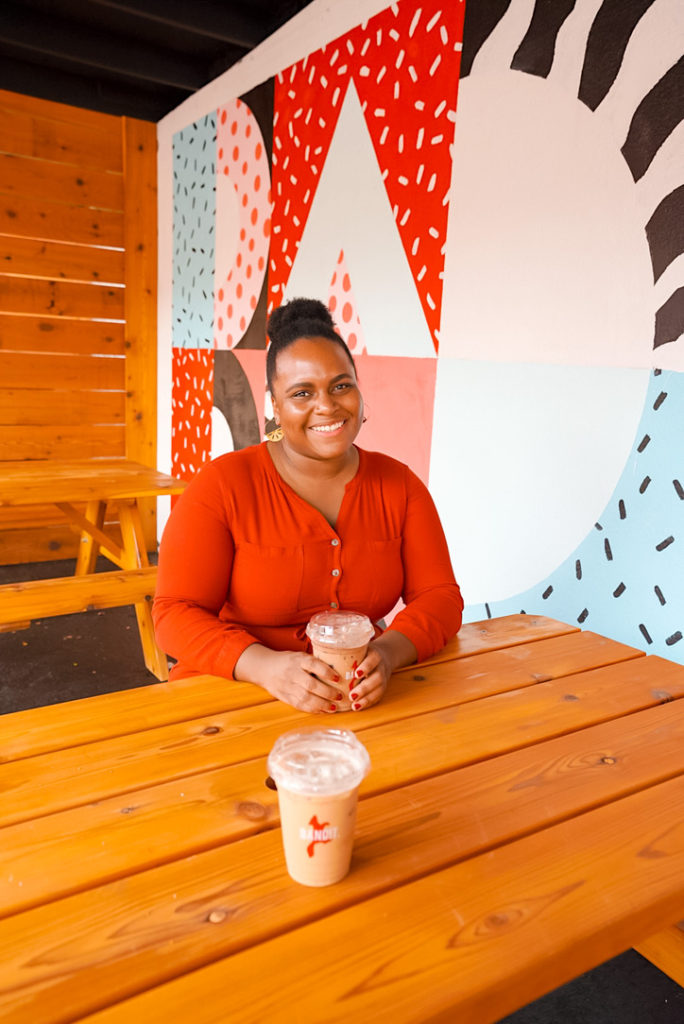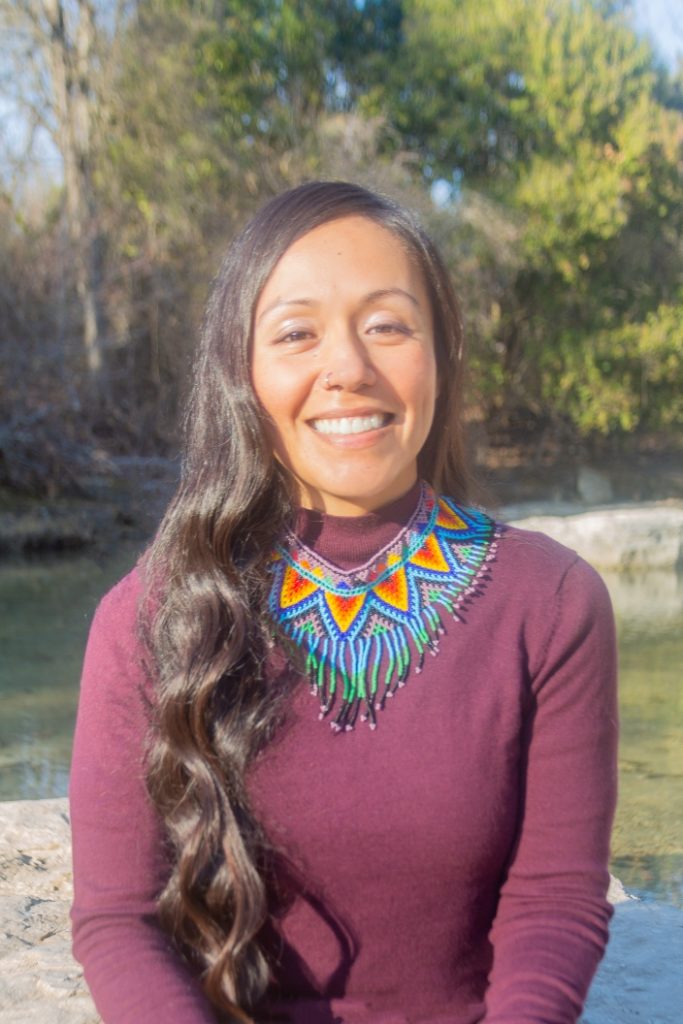Briona Jenkins and Rocío Villalobos dedicate their lives to bringing hope and true equity to Austin’s underrepresented populations.
By Cy White, Briona Jenkins photos by Shelby Sorrel, Rocío Villalobos photos by June Gunaratne and Lindsay Porter
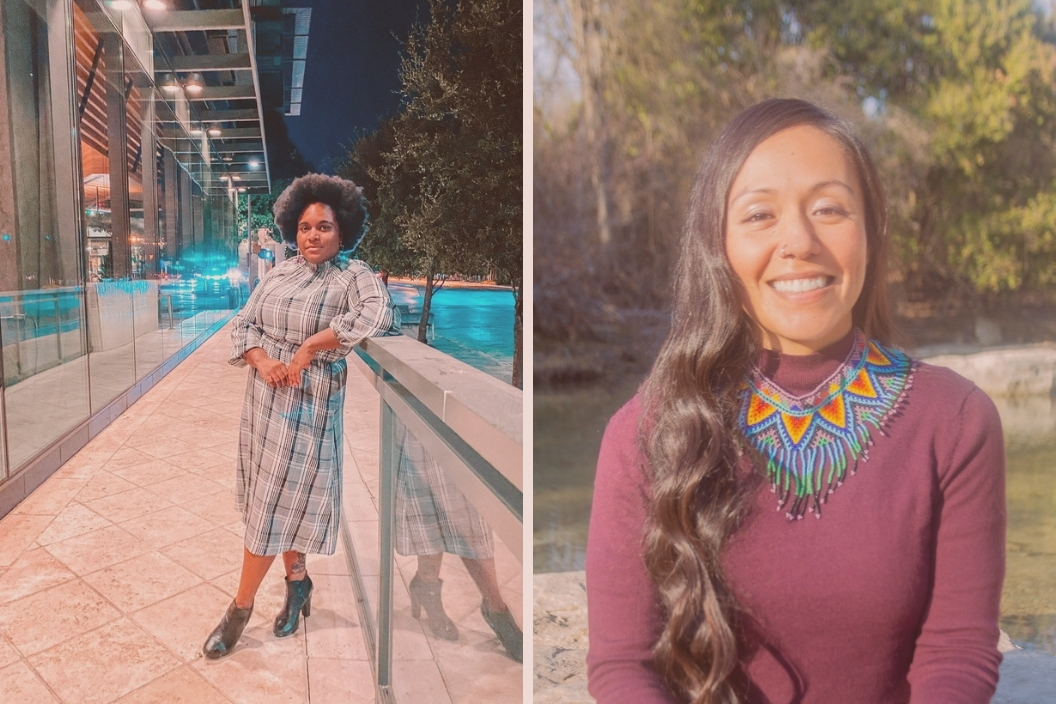
What does it mean to be a voice for the voiceless? To be a beacon of light for those who continue to suffer in the dark, in silence. Without the resources to make it out of a desperate situation? The truth is, many (if not most) of us don’t have the stuff to do the work to help the helpless. Or we have the good intentions without the drive, follow-through or just the mind and fortitude to do the work necessary to change the situation of hundreds, even thousands of people. However, for women like Briona Jenkins and Rocío Villalobos, this is the work they live for; asking the tough questions and digging in with their hearts and hands to find the answers. Their paths, while somewhat disparate, lead to one goal: creating the inclusive Austin everyone deserves.
One of the worst-kept secrets in Austin is the very real resource disparity between white communities and those of their Black and brown counterparts. Let’s face it, the entire country still has an issue it hasn’t dealt with. In this seemingly endless fight for “equality,” saying we want things to change only goes so far. What it actually means to have the resources to be on real equal footing across the board is often lost in discussion. Where are the people who will get their hands into the thick of the problem and start making things happen? Nonprofit organizations (NPOs) historically are a means to bring much-needed resources and hope to those people and communities that have so little of either.
Different Paths to Nonprofit Success
Briona Jenkins and Rocío Villalobos—two women of color from different walks of life and with different missions. They’re right there in the trenches. Fighting to make sure all communities have the same opportunities to meet the challenges that so many people avoid simply because of who they are and where they’re from.
Jenkins has a long history with nonprofit work. She’s a veritable rock star of the space. Rallying behind various causes to give all people the ability to survive and reach for excellence no matter their current circumstances.
Briona Jenkins: Nonprofit Superstar
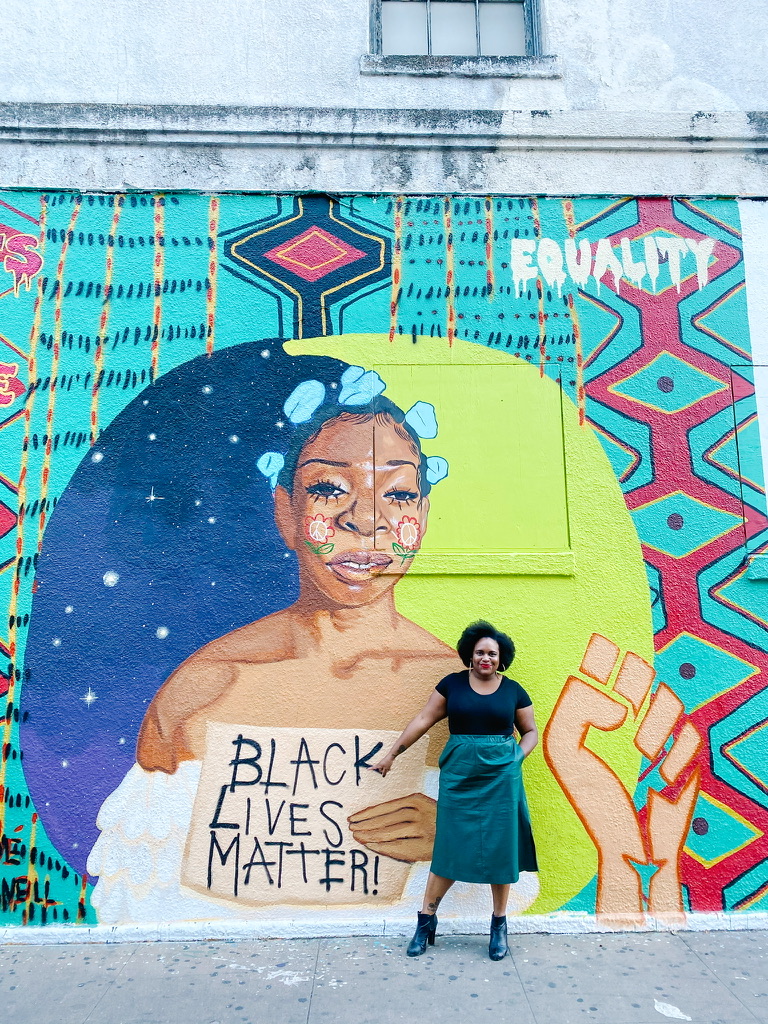
“I just joined the Austin Justice Coalition (AJC) team as their director of development,” Jenkins reveals. “I am in charge of donor and partner relations and helping the organization to reach its fundraising goal.”
Her work doesn’t end with fundraising. As the co-director of New Leaders Council (NLC) Austin—“the hub for progressive millennial thought leadership”—Jenkins has made it a mission to continue to train and nurture the current and next generations of voters. So they might have the tools to enact change themselves.
“In 2016, the NLC Austin chapter trained more than 90 progressives through the Institute Program, a six-month flagship training program hosted once a year,” she says. “These leaders are rising entrepreneurs, community advocates and nonprofit leaders, working to make Austin a truly progressive city. I have also worked at Register2Vote, Out Youth, United Way for Greater Austin and Foundation Communities. I have sat on the boards of Lone Star Victims Advocacy Project, Austin Black Pride and Keep Austin Fed.”
Commission on Immigrant Affairs
Villalobos has taken a different approach to her advocacy. Since March of 2020, she has walked fully into the role of the community services coordinator of immigrant affairs for the City of Austin.
“I started in this position in March of 2020, after our office transitioned to working from home,” Villalobos says. “This position was created thanks to community advocacy and with the support of the City’s Commission on Immigrant Affairs. In the future, our goal is to have an office dedicated to serving our immigrant residents in order to create a more welcoming and inclusive city.”
Rocío Villalobos: For the Youth
As with Jenkins, Villalobos has a heart for advocacy and service. Alongside her mission to help provide security and aid to the immigrant community in Austin, she’s dedicated to providing mentoring and much-needed healing to immigrant youth. She also has a passion for helping young women in their development.
“I serve on the board of Youth Rise Texas and Ecology Action. And I’m a mentor with Explore Austin,” she says. “Youth Rise Texas is dedicated to uplifting the voices of young people harmed by criminalization and deportation so they may heal, take action and cultivate compassionate communities.
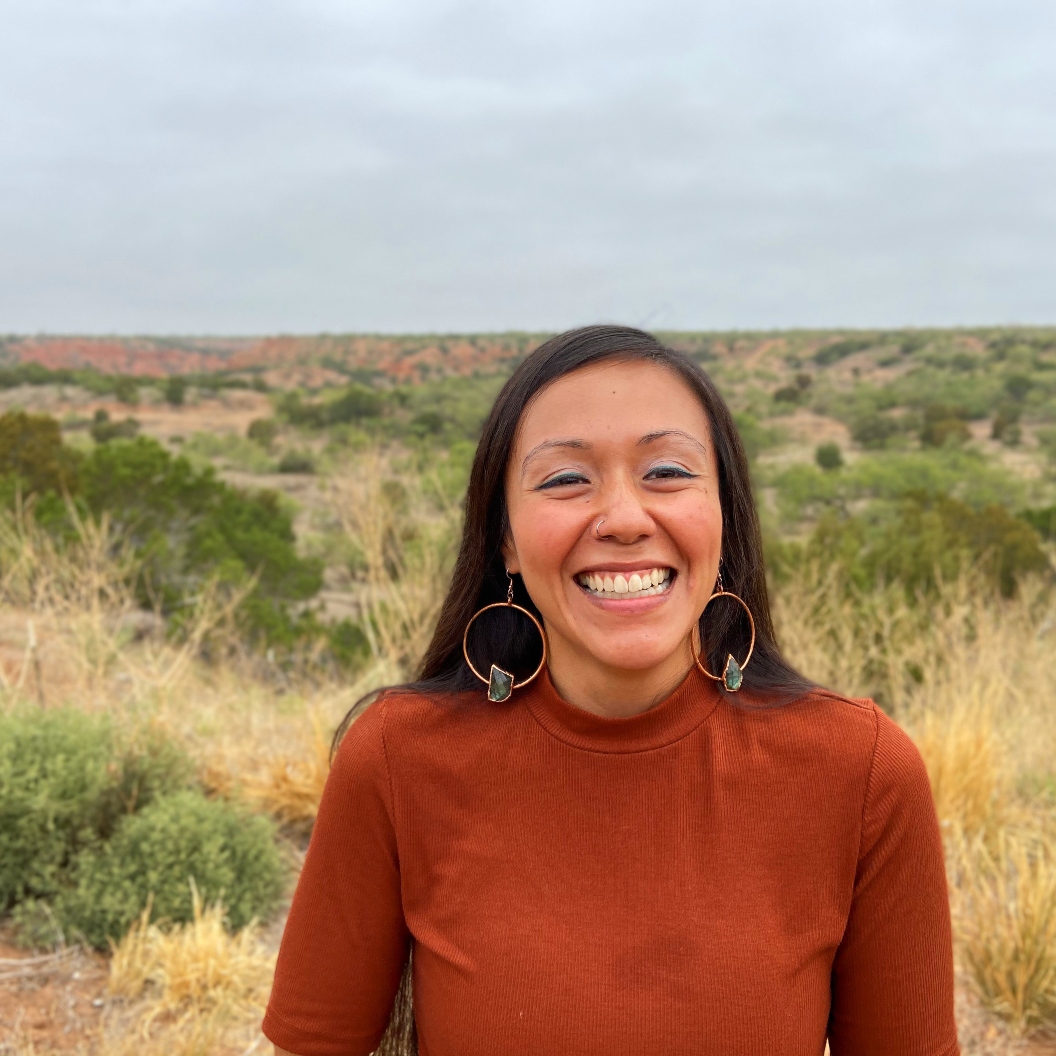
“Ecology Action of Central Texas stewards Circle Acres Nature Preserve, a former landfill and brownfield located in Montopolis, a neighborhood in Southeast Austin. Explore Austin uses mentoring, leadership and outdoor adventure to support youth in stepping into their power. As a mentor, I work with four other adult mentors. We are teamed up with a group of 15 young women we call explorers. Each year, we focus on learning a different outdoor skill. The year culminates in a summer wilderness trip where we get the opportunity to put our new skills to the test for a week in the wilderness.”
The Elephant(s) in the Room
Just like the communities it serves, the nonprofit sector has much inequity of funding, resources and support. It takes women like Jenkins and Villalobos working tirelessly to see people get the help they deserve.
But what are we really talking about here? We can’t begin to address the issues if we’re too afraid to actually say what they are. Truth is, there are quite a few ugly truths about the state of inclusivity and equity in Austin.
“Austin used to be a predominantly Black city,” Jenkins says. “Now I can go about three to four days before I see another Black person. And that was before the pandemic. Austin is not as diverse and equitable as we hope. This is made clear when looking at the school system, folks experiencing homelessness and the police and how they still tend to arrest, charge and shoot more folks of color than white folks.”
“I grew up in East Austin,” Villalobos begins. “Have lived in Austin my entire life. Felt deep sadness watching the neighborhood that I grew up in change as its residents continue to be displaced. This city has not progressed as far as people like to believe. When it comes to making critical decisions that can either uphold or work to dismantle white supremacy in our systems and institutions, I regularly witness people choosing to perpetuate racist outcomes. It takes courage to do things differently. There’s a fundamental lack of courage in this city because people are more invested in having power.”
Real Solutions
So now we’ve addressed the elephant(s) in the room. Tt’s time to get down to the business of actually doing something about it. Ignoring the issues has done nothing more than continue to stir the pot of mistrust and wariness within Austin’s communities of color. Specifically those whose populations are predominantly Black and brown.
For Villalobos, who has seen the heistancy of the non-POC population to actively dismantle the disease of white supremacy from their programming, a level of selfless valiance is the first step. “It’s critical to lead with race in the work that we do,” she says. “Courage is a muscle, and the more people are willing to exercise that muscle, the easier it will become. Though I’ve seen a lack of courage, I’ve also seen and been inspired by bold leadership.”
As with every Black and brown person in this country, Jenkins understands that restructuring at the local government level is crucial. “I know the phrase ‘Defund the Police’ makes a lot of folks nervous,” she says. “So I will say that we need to reallocate funds from the police to EMS. (We only have about 30-40 ambulances in Austin.) To help house folks experiencing homelessness, provide universal pre-K for all children in Austin, rental assistance and much more. I would also love to see an initiative to get more educators of color, tech people who are BIPOC (Black, Indigenous, People of Color) and folks who are looking to plant down roots in a city that can be a place of liberal hope.
“We are working to make an Austin that works for everyone,” she continues. “Where everyone is employed, safe, housed, not afraid of interacting with the police, healthy and represented.”
A Better, More Inclusive Austin
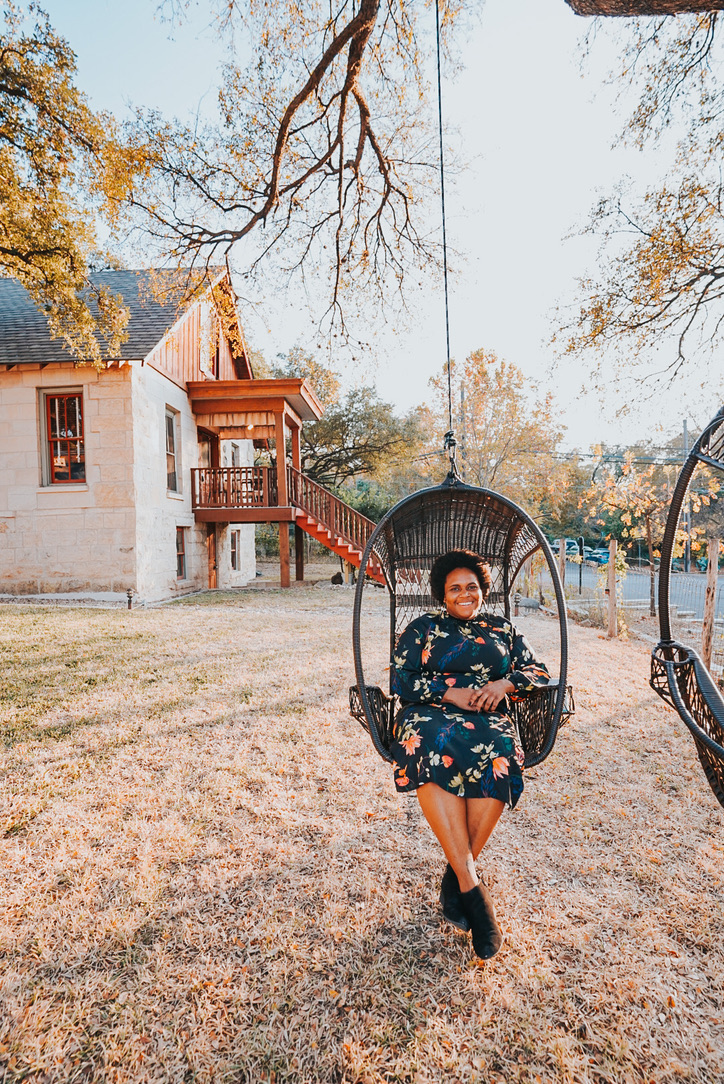
That’s the beauty and magic of the nonprofit organization. At its best, it’s a tool for healing, restructuring and hope for so many who just need one thing, anything, to motivate them to push for a better future for themselves and their loved ones. The respective work of both Jenkins and Villalobos, though different in terms of organizations, is similar in cause and purpose. Ultimately making a better, truly inclusive Austin.
“Since my role at the city is housed in the Equity Office, I have the opportunity to both serve our immigrant communities as well as work with departments across the city as they begin to look inwards and look at the outcomes their department produces through an equity lens,” Villalobos says. “Our office believes that racial equity requires a cycle of normalizing, operationalizing and organizing. That is at the heart of our work. Advancing racial equity is a lifelong journey and commitment.”
Says Jenkins, “AJC serves people who are historically and systematically impacted by gentrification, segregation, over policing. A lack of educational and employment opportunities and other institutional forms of racism in Austin. We are working on combating higher ed, housing and much more to make Austin a more equitable place for BIPOC. The Austin chapter [of NLC]is constantly helping to mold the folks who will have an impact on our community.”
Briona Jenkins: Nonprofit Inequity
Every triumph, however, isn’t without its harsh disappointments. Says Jenkins, “A lot of NPOs are kept afloat by the work of the direct client staff or staff that is not in the executive suite. And 98% of that is majority people of color or women. While these folks keep the org going and assist the clients more often than not it is white, cisgender men who are the executive directors. Or the ones who ‘get most of the credit.’
“It’s been one of the most disheartening experiences of working for NPOs. Loving the work, your clients and your coworkers. But feeling as if the higher-ups couldn’t care less about your well-being or notice the work that you are doing.”
Of Defiance and Isolation
“White organizational culture can be alienating,” says Villalobos. “It’s made it difficult for me to show up as my full self at work. I’ve had to navigate feeling both invisible and hypervisible in workplace environments. There have been times where I’ve showed up for work with a heavy heart and had difficulty concentrating following very public acts of white-supremacist violence that made national headlines. There was no mention of this at my workplace. No acknowledgment that those acts happened. Which had the effect of making me feel alone. That the things that people of color have to contend with have no impact on the lives of the leadership of organizations. On the flipside, I’ve also had the experience of having white leadership turn to me. Expecting me to have all the answers and solutions about race and racism.”
Indeed, being a woman of color in this space, as with a great many spaces, doubles as an act of defiance and isolation. “I feel like I always had to be the one to speak up,” says Jenkins. “Whether it was when a coworker said something problematic or we posted something on social media that didn’t sit well. Additionally, as the fundraiser, I feel like I am constantly representing the organization I work for. I feel like I have to always be on point and not only represent the org but all (professional) Black women even when I am ‘not on the clock.’”
The Power of the Nonprofit
In the end, however, the work is important. It has meaning, nuance, depth. When the dust settles, what women like Briona Jenkins and Rocío Villalobos do gives light to the darkness.
“I have become pretty well known for the phrase ‘Change happens in the uncomfortable places,’” Jenkins reflects. “With January being a pretty wild month, especially after such a heavy 2020, I am hopeful we can continue to change for the better. I also hold on to ‘You have to see yourself beyond where you find yourself.’ My godfather, Pastor Kennedy D. Hampton Sr., has been saying that for as long as I can remember. It’s the gentle push I need when I feel stuck or unsure of what’s next for me. I know I am destined for greatness. That it will find me if I keep looking for it.”
“This work is a marathon and not a sprint,” says Villalobos. “I entered the world of ultramarathons in the past couple of years. You need to have very different strategies for a short-term effort versus a long-term effort. Otherwise you will crash and burn very quickly. It’s also important to remember that it took hundreds of years to get to where we are now. And it will take a long time for change to occur. This is where radical hope comes in. It requires you to believe that the world we need is possible and attainable. Even if we don’t get to see it in our lifetimes.
“This work can be challenging and draining at the same time that it’s rewarding,” she continues. “Think about what fills you up and makes the world feel a little brighter. Find those things that can nourish you so that your energy and spirit can be restored for the long road ahead.”



